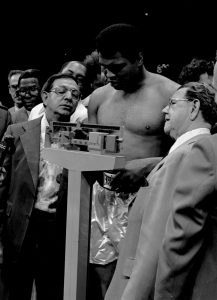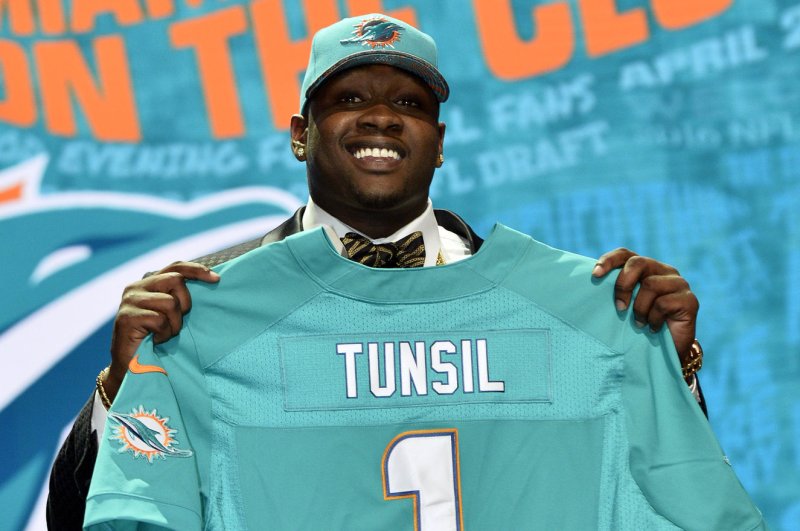In his award winning video Everyday Creativity, National Geographic photographer Dewitt Jones suggests one key to living a creative life is by “reframing problems into opportunities.” Some people suggest Jones is merely restating the old adage, “Necessity is the mother of invention,” a time-tested principle which can be found in English translations of Plato’s Republic.
It has also proved to be a successful formula for many entrepreneurs. For example, Stephen Spinelli and his partners started JiffyLube when the U.S. Environmental Protection Agency made it more difficult for car owners to change the oil in their vehicles by mandating waste products be taken to designated disposal stations.
My thoughts turned to Jones, Plato and Spinelli this past Sunday morning as I was watching “The Sports Reporters” on ESPN. The cable network had a problem. John Saunders, the much admired and respected host of the show had unexpectedly passed away at the age of 61. On the first show following his death, ESPN gathered four panelists who often shared the stage with Saunders. As expected, Mike Lupica, Bob Ryan, Mitch Albom and Bill Rhoden provided a moving send-off for their friend and colleague.
But ESPN still had a problem. Saunders took over as moderator of “The Sports Reporters” in 2001 replacing the original host Dick Schaap when the much-honored sports journalist took ill and subsequently died. (For you trivia buffs, Schaap’s last show was September 16, 2001, the Sunday following the 9/11 attack .) Many wondered if the show would survive Schaap’s absence. Under Saunders’ leadership, the show not only survived, it flourished. After August 10, 2016, once again, ESPN faced the question, “What now?” Many speculated Lupica, “dean” of the “Sports Reporters” panelists would assume the host’s chair.
 I must admit I was greatly surprised when the August 28 edition of the show opened with initial observations by four female sportswriters and broadcasters: Kate Fagan, Sarah Spain, Jane McManus and guest host Jemele Hill. My first thoughts were of my late father who never got used to the idea of women and television sports. I will never forget his reaction when Gayle Sierens Waldman became the first woman play by play announcer for an NFL game in 1987. But we are in a different era. And ESPN saw an opportunity.
I must admit I was greatly surprised when the August 28 edition of the show opened with initial observations by four female sportswriters and broadcasters: Kate Fagan, Sarah Spain, Jane McManus and guest host Jemele Hill. My first thoughts were of my late father who never got used to the idea of women and television sports. I will never forget his reaction when Gayle Sierens Waldman became the first woman play by play announcer for an NFL game in 1987. But we are in a different era. And ESPN saw an opportunity.
Hill referred to the program as the “Ghostbusters” edition, referencing the media frenzy around the remake of the 1984 classic comedy with an all female cast. She understood the risk associated with this experiment, but just as Saunders and Lupica would have done, moved the dialogue through discussions of on and off the field sports issues of the day. The panelists demonstrated knowledge and insight on topics ranging from the impact of Tony Romo’s pre-season injury to whether the NFL front office was handling instances of domestic violence equitably. In fact, the biggest surprise was the differing views on New York placekicker Josh Brown’s one game suspension following a charge of attacking his ex-wife.
Kudos to ESPN. They could have played it safe. Instead, they saw an opportunity to acknowledge the growing emergence of skilled female sports reporters. Before the show began, I was looking forward to seeing whether Lupica would still be in the host’s chair. By the end, I was surprised how much I enjoyed watching the interaction among these four talented women. I should have known better. Shame on me.
For what it’s worth.
Dr. ESP
 First, Leonidis would have reminded us of the purpose of the original Olympics. Not only did it bring together representatives from all corners of the Greek empire. It also represented “a union of body, mind and spirit.” The games were accompanied by a cessation of any hostilities among competing factions within Greece. And the games were always held on the plains of Olympia (thus the title Olympic games). Originally, the games were a one-day event which were later extended to three then five days. Sporting events in the early Olympics included running, long jump, shot put, javelin, boxing, pankration (translation “all force,” a combination of boxing and wrestling) and equestrian events.
First, Leonidis would have reminded us of the purpose of the original Olympics. Not only did it bring together representatives from all corners of the Greek empire. It also represented “a union of body, mind and spirit.” The games were accompanied by a cessation of any hostilities among competing factions within Greece. And the games were always held on the plains of Olympia (thus the title Olympic games). Originally, the games were a one-day event which were later extended to three then five days. Sporting events in the early Olympics included running, long jump, shot put, javelin, boxing, pankration (translation “all force,” a combination of boxing and wrestling) and equestrian events.
 rative was dominated by the release on social media of two stories about Ole Miss standout Laremy Tunsil. Minutes before the draft officially commenced, a tweet of Tunsil smoking weed surfaced on the internet. Later that evening, an Instagram post included text messages in which Tunsil asks for money first to pay his rent and second to help his mother with her utility bills.
rative was dominated by the release on social media of two stories about Ole Miss standout Laremy Tunsil. Minutes before the draft officially commenced, a tweet of Tunsil smoking weed surfaced on the internet. Later that evening, an Instagram post included text messages in which Tunsil asks for money first to pay his rent and second to help his mother with her utility bills.